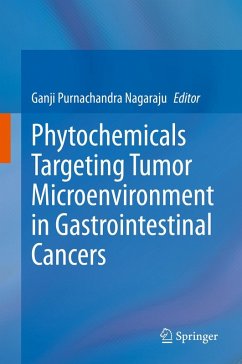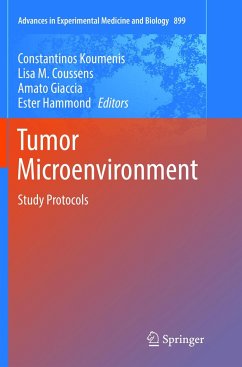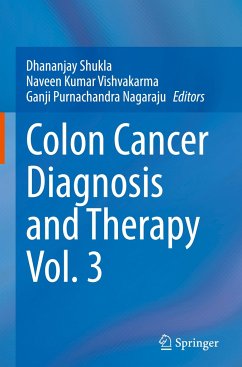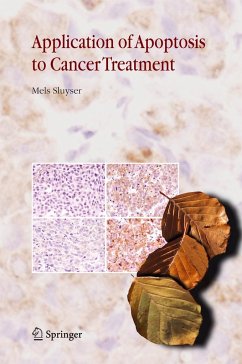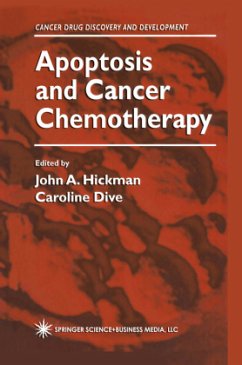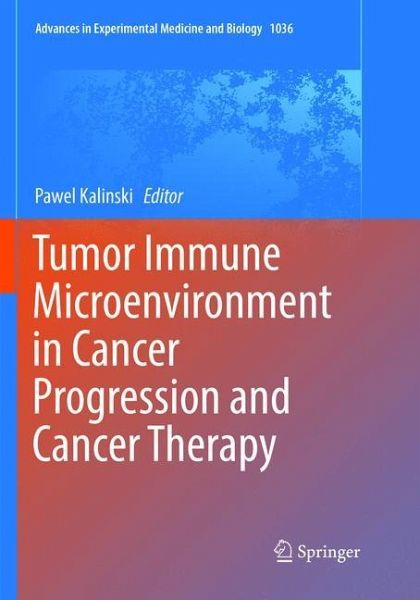
Tumor Immune Microenvironment in Cancer Progression and Cancer Therapy
Versandkostenfrei!
Versandfertig in 6-10 Tagen
98,99 €
inkl. MwSt.

PAYBACK Punkte
49 °P sammeln!
The tumor microenvironment has become a very important and hot topic in cancer research within the past few years. The tumor microenvironment is defined as the normal cells, molecules, and blood vessels that surround and feed a tumor cell. As many scientists have realized, studying the tumor microenvironment has become critical to moving the field forward, since there are many players in a tumor's localized and surrounding area, which can significantly change cancer cell behavior. There is a dual relationship wherein the tumor can change its microenvironment and the microenvironment can affect...
The tumor microenvironment has become a very important and hot topic in cancer research within the past few years. The tumor microenvironment is defined as the normal cells, molecules, and blood vessels that surround and feed a tumor cell. As many scientists have realized, studying the tumor microenvironment has become critical to moving the field forward, since there are many players in a tumor's localized and surrounding area, which can significantly change cancer cell behavior. There is a dual relationship wherein the tumor can change its microenvironment and the microenvironment can affect how a tumor grows and spreads. Tumor Microenvironment in Cancer Progression and Cancer Therapy aims to shed light on the mechanisms, factors, and mediators that are involved in the cancer cell environment. Recent studies have demonstrated that in addition to promoting tumor progression and protecting tumor cells from the spontaneous immune-mediated rejection and different forms of cancer therapeutics, tumor microenvironment can also be a target and mediator of both standard and newly-emerging forms of cancer therapeutics. Thus, the dual role of the tumor microenvironment is the integral focus of the volume. The volume highlights the bi-directional interactions between tumor cells and non-malignant tumor component during tumor progression and treatment. It also focuses on the three groups of the reactive tumor component: stromal cells, blood vessels and the infiltrating immune cells. These three groups are discussed under the lens of their role in promoting tumor growth, shielding the tumor from rejection and from standard forms of cancer therapies. They are emerging as targets and mediators of standard and new forms of potential therapy.



